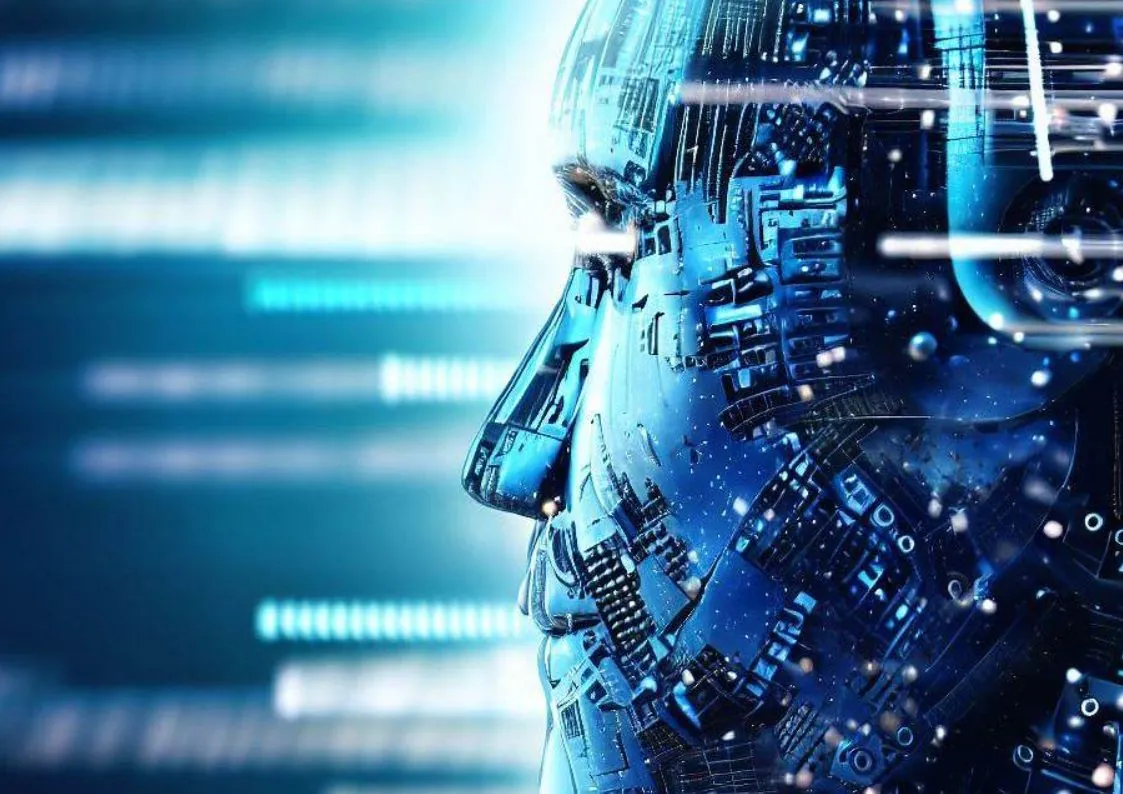“Black Swans 2025: What events could turn the world upside down this year – PoliticoPolitico experts have compiled a list of “Black Swans” – unlikely but possible events in 2025. Among them are a large-scale
cyberattack, new nuclear powers, and an epidemic in the United States.”, — write: unn.ua
Politico has published a list of “Black Swans” – unpredictable and unlikely events that, according to experts, could happen in 2025, UNN writes.
The largest cyberattack in history
In 2025, the largest cyberattack in history may well take place, disabling, at least for a time, much of the world’s infrastructure, whether for ransom or to manipulate people to profit from falling prices on global markets.
Today, cybercrime is already a trillion-dollar problem that most victims don’t like to talk about. It is reportedly larger than the entire global drug trade. And there are four factors that could make the situation much worse in 2025.
First and foremost, it is, of course, generative artificial intelligence, which is growing in popularity and decreasing in price. It is an ideal tool for cyberattacks. Even though it is unreliable and can provide false information. However, it does a great job of creating believable texts and fake videos for almost zero cost, which allows attackers to expand the scope of their attacks. Secondly, large language models are notoriously vulnerable to hacking and things like “hinting attacks” for which there is no known solution.
Third, generative artificial intelligence tools are increasingly being used to create code. In addition, in some cases, these coders do not fully understand the code they write, and auto-generated code has already shown that in some cases it contains new security holes.
Agreement to stop Iran’s nuclear weapons production
Russia does not want Iran to have nuclear weapons, and neither does the United States. Russia tried to help Joe Biden restore the international nuclear deal by negotiating an interim agreement with Tehran that provided for limited sanctions relief in exchange for some restrictions on its nuclear program. Iran rejected it, and a month later, Russian troops entered Ukraine.
Nowadays, Russia is cooperating more with Iran, as it depends on it to supply drones in the war in Ukraine. Since the fall of the Assad dynasty, Vladimir Putin has been criticized at home for reducing Russia’s influence in the Middle East. A US-backed attack on Iran would show how little power Russia has.
Donald Trump also finds himself in a difficult position. His Republican allies are out for blood and are pushing him to assist an Israeli attack to prevent a nuclear attack by Tehran. Yet Trump has been warned against action by Saudi Crown Prince Mohammed bin Salman, who does not want a nuclear Iran but fears Iranian retaliation against Saudi oil facilities in the event of an Israeli attack. For Trump, this will mean a rapid rise in energy prices.

In addition, Putin called Trump on a private secure line and told him that he had a secret agreement that would stop Iran from developing nuclear weapons. Putin convinced Iran to agree to a 5-year pause in the development of nuclear weapons, provided that Trump persuaded Israel not to attack. The new US president managed to convince Israeli Prime Minister Benjamin Netanyahu, promising the MBS to normalize relations with Israel on the condition that it abandons the Iranian attack.
Changing the borders of the US states
Secessionist movements in the United States, which had remained largely fringe phenomena for decades, were suddenly thrust into the national spotlight when President Donald Trump openly supported the Greater Idaho initiative. This decision gave new impetus to supporters of redrawing state borders, allowing more conservative and rural counties in eastern Oregon to join neighboring Idaho. Although the idea is not new, support at the highest levels of the federal government has transformed it from an unlikely scenario to a precedent that threatens political instability.
The explosive spread of the president’s comment on conservative social media triggered the growth of numerous movements across the country. Under the slogan “New state or no state!” public rallies began to take place from California to Texas, with long-standing initiatives and new groups seeking to change the borders of their states or even secede from the United States. In Texas, calls for “Texas Secession” have been revived, while in Eastern Illinois, the issue of secession from Chicago has been raised again. Similar ideas are being discussed by Colorado residents who want to join Wyoming.
These movements quickly turned into a battleground between different groups. Along with moderate protesters, radical elements emerged: armed separatists, far-right racist groups, and self-proclaimed “sovereign citizens.” At the same time, their opponents, who advocate preserving the integrity of the states, united under the symbol of the colorful “All States, Every State” badge. Tensions reached a peak in the fall, when police in upstate New York tried to break up clashes between protesters with rubber bullets, resulting in the deaths of two participants – an armed separatist and a counter-protester.
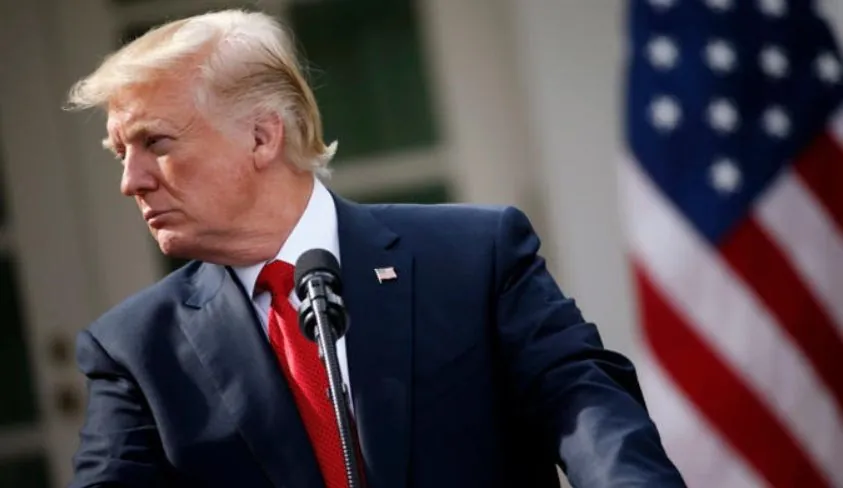
As for Trump, he has moved on to other issues. In the meantime, however, the parameters of secession and border elimination have taken a step toward greater legitimacy at both the state and national levels, with new referendums and working groups scheduled for the new year.
Large-scale epidemic in the United States
In a small rural community where vaccination rates remain low, an outbreak of an infectious disease quickly becomes a national threat. The first symptoms of the illness are “flu-like” – high fever, headache, muscle and throat pain – so local authorities initially assume it is a seasonal outbreak. However, tests for influenza, Covid, and RSV come back negative, forcing doctors and officials to look for other causes.
When it turns out that patient zero has recently returned from abroad, where an outbreak of an undiagnosed disease has already claimed hundreds of lives, the state health department calls in the CDC. However, the local government, which recently passed a law limiting the health department’s powers, is reluctant to implement the necessary measures – contact tracing, masking, social distancing, and quarantining infected individuals. The community, skeptical of the control measures, begins to spread misinformation, in particular, that the disease can be spread through the mail. It turns out that these reports are disinformation and are likely being spread by foreign actors.
Meanwhile, the outbreak continues to spread to surrounding communities, including major cities and other states. The death toll is rising, and due to the lack of workers, schools and businesses are forced to close, even without official closure orders. It turns out that there is an experimental vaccine, but it requires an emergency use permit. However, there is strong skepticism about vaccines among the leadership of the Ministry of Health and Social Services, which leads to decision-making paralysis.
At the same time, pharmaceutical companies are hesitant to produce drugs without legal protection and financial support. Problems with decision-making at the Food and Drug Administration are only exacerbated by the dissolution of advisory committees traditionally involved in vaccines and therapeutic drugs.
As a result, the outbreak spreads throughout the United States, turning the situation into an epidemic. Other countries, trying to protect themselves from infection, impose an entry ban on US citizens. This has a negative impact on the economy: there is a growing shortage of goods and services, and cargo is delayed in ports. Although the world had all the tools to control the situation, the epidemic claims thousands of lives, and the country’s economy is once again falling into a downward spiral similar to that of the Covid pandemic.
The Emergence of the Trump-Jinping-Putin Alliance to Resolve the War in Ukraine
Trump’s first term was characterized by a trade war between China and the United States. On the eve of his second term, Trump doubled down on his anti-China message and announced that he would impose a 60 percent tariff on Chinese imports. Many fear that playing hardball against Xi Jinping, who has made it clear that he will fight for what he sees as China’s rights, could escalate already tense geopolitical relations. But on closer inspection, the opposite is just as likely to happen: an alliance between Trump and Xi.
Unlike the first round of the Trump-Xi confrontation, the second round has fewer fundamental differences and more opportunities for cooperation.
2016-2020 was the peak of competition between China and the United States. China claimed to surpass the United States as the world’s largest economy. It claimed that its political system and ideology were superior to the US. China’s long-term economic plan, “Made in China 2025,” was seen by America and many other countries as a direct threat. Since then, China has tempered its claims of superiority and is grappling with economic challenges caused by prolonged and intense quarantine restrictions due to Covid-19, a real estate crisis, local government debt, youth unemployment, and a rapidly aging population.
American priorities have also changed. In the 2024 campaign, Trump promised to end the Russian-Ukrainian war that began after his first term. Trump and Xi, who both demonstrate a personal admiration for Russian President Vladimir Putin, are likely to work together with the latter to formulate a peace agreement. Trump also promised Americans to limit immigration. This is likely to reduce the labor force and raise American consumer prices.
In addition, if Trump has to choose, he will give preference to immigration, which was the central issue of the election. This will open another door for Trump and Xi to negotiate and compromise.
2025 could be the year when Trump and Xi discover that they have much more in common than they think.
Two-state solution
Today, the world is highly interconnected, so the potential for surprises is much greater than in any previous crisis. A key reason for this interconnectedness is the war in Ukraine, which has affected numerous international relations. For example, without Putin’s invasion of Ukraine, we would not have seen the close cooperation between Russia, North Korea, and Iran, and China would not have deepened its support for the Kremlin.

One of the most unpredictable events in 2025 could be a peaceful resolution of the war in Ukraine. Such a “Black Swan” would have complex ripple effects, especially in North Korea and Iran. The withdrawal of Russian troops would likely force North Korea to shift its focus to the conflict with South Korea.
DPRK launches ballistic missile during Blinken’s visit to SeoulJan 6 2025, 04:07 AM • 21270 views
However, the biggest “Black Swan” in the Middle East may be the unexpected achievement of a peace agreement between Israel and Palestine based on the two-state solution. This would require the new Israeli government to remove right-wing politicians and dismantle settlements in the West Bank. Palestinians will have to find a common platform under a new leader. Saudi Arabia and the UAE will also play a key role. This scenario is so unlikely that it looks like the biggest surprise of the next year.
The market crash was triggered by global panic
In the midst of deregulation and government downsizing, President Donald Trump’s administration is underestimating the potential for technological attacks, particularly in the financial sector. Artificial intelligence (AI) is actively using real-time market data and social media to find vulnerable companies that could become targets for disinformation attacks. AI generates fake news and rumors about the management, products, or financial problems of companies to cause panic among investors.

Before launching the attack, the AI tests various scenarios to optimize the disinformation campaign. After that, it performs high-frequency operations on the market, causing mass panic and forcing hedge funds to follow suit. Due to the lack of proper regulation and a strategic plan in the Trump administration, the attack remains undetected and countermeasures cannot be implemented quickly.
The consequences are global financial panic. Rumors of far-left tech groups participating in attacks on the markets are spreading, and rumors of a possible attack on Trump’s personal wealth are only exacerbating the crisis.
Fighting climate change
Despite the return of Donald Trump to the White House, the United States continues to take measures to combat the climate crisis. In 2024, two powerful hurricanes, Helene and Milton, caused massive destruction in the southeastern United States. Nine out of ten Americans have already felt the effects of extreme weather, which has become a serious signal for change.
Action on climate change is gaining increasing bipartisan support. The CAFTA has catalyzed unprecedented investment in clean energy, most of it in Trump-voting counties. This was also reflected in the support for climate initiatives at the local level: voters approved 13 state and local initiatives aimed at preserving the environment. Society is approaching a point where climate action will become the norm, and 2025 could be the year of this important shift.
Unexpected geopolitical alliances
Artificial superintelligence and quantum computing are likely to take off by 2025. These developments could spur economic growth in new industries, benefiting both rural and urban regions, and leading to unexpected geopolitical alliances. It will change relations with the Middle East and Europe, and increase productivity in Africa and India, transforming the global political and economic landscape.
Israel and Hamas resume talks in Qatar: what is known about the new attemptJan 5 2025, 02:47 PM • 29887 views
Another important aspect is the potential changes in the Middle East. There is a possibility that Trump could mediate peace processes in regions such as Gaza, Syria, and southern Lebanon, promoting stabilization and democracy. This will require complex international negotiations, but success could change the political picture in that part of the world.
Nor can we ignore the vulnerability of global infrastructure to disasters caused by cyberattacks or natural disasters. This interconnectedness of infrastructures means that a failure in any part of the world could have serious ripple effects, affecting economic stability and daily life.
The future promises numerous opportunities, so it is important to be prepared for various scenarios, not just react to them.
South Korea’s secret nuclear weapons program
The unexpected nuclear weapons test on the Korean peninsula has shaken the world – and it’s not about North Korea. South Korean President Lee Jae-myung made a statement that stunned the world: The Republic of Korea is now a nuclear power, and it is invoking Article X of the Nuclear Non-Proliferation Treaty to withdraw from it.
South Korea’s secret nuclear program was started under the disgraced former president Yun Suk-yol, who was impeached, removed from power, and imprisoned for attempting a coup d’état. But when Lee took office and discovered the program, he ordered the scientists to continue.
In the past, the United States could have detected and prevented any attempts by Seoul to develop nuclear weapons. But Donald Trump’s administration, after purging the “deep state” in the State Department and CIA, has failed to do so.
Not that Trump minds: He praises the move, saying that South Korea’s “big beautiful bomb” is a sign that the country is serious about defending itself against North Korea, not “leeches” from the United States.
Without US support, dominoes fall in East Asia. Almost simultaneously, Japan and Taiwan announce their own programs-after all, technology has never been a problem for these countries.
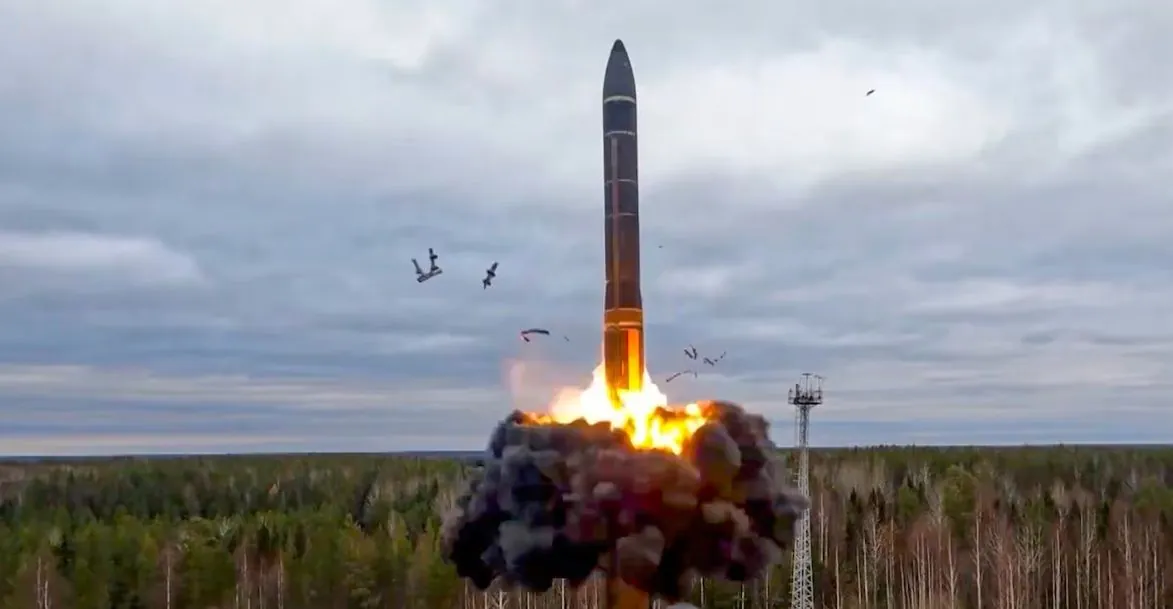
With the withdrawal of leading Asian countries from the Nuclear Non-Proliferation Treaty, the system is becoming unstable. One of the main pillars of the post-World War II world order is also being destroyed. The era of mutually assured destruction is returning.
US Army enters the era of the unvaccinated
On January 22, two days after the inauguration, the US Secretary of Defense is expected to announce that vaccines will not be mandatory for the military and the government will not reimburse their cost. Instead, Robert F. Kennedy Jr. along with allies from the CDC, FDA, and NIH will declare them unsafe and ineffective. Consequently, the U.S. military is moving to a stage where the majority is not vaccinated.
At that time, a strain of H1N1 bird flu emerged on a dairy farm in Texas, which was transmitted from cows to farm workers.

The outbreak reaches the Fort Cavazos military base, where farmers and soldiers fall ill and die. The government will not make official statements, and the Center for Disease Control (CDC) refuses to recognize the outbreak. The flu is spreading rapidly across the country and the world, and more and more military personnel are falling ill.
В Україні зафіксовано 13 випадків небезпечного метапневмовірусу: хто в зоні ризикуJan 6 2025, 12:07 AM • 64061 view
Eventually, other countries begin to act: Mexico, China, Europe, and Russia organize vaccination campaigns. However, American bases abroad become centers of the outbreak, which reduces US military readiness. Generals say that the flu poses a greater threat than China, which outrages President Trump, who orders a court martial for one of the generals.
While China, India, and Russia are successfully vaccinating their soldiers, the U.S. military remains weakened. Europe and East Asia are beginning to demand the expulsion of American troops, forming a new security order. International markets react, with capital moving to more stable economies.
The people of Belarus could see freedom
In the event of Russia’s defeat in Ukraine, under the pressure of international isolation and economic problems, the Lukashenka regime in Belarus may face serious difficulties. The predicted weakening of the Kremlin’s position will allow the Belarusian people to seize the moment when the country is ready for change. Svetlana Tsikhanovskaya, the elected president-in-exile, has already called for the mobilization of protests, pointing to the possibility of overthrowing the authoritarian regime.
Territory controlled by the Defense Forces began to increase in the direction of Kursk – LeshchenkoJan 6 2025, 10:12 AM • 5195 views
The people of Belarus, supported by internal dynamics and international events, may seek freedom if Russia fails to support Lukashenko. Putin, forced to make compromises in the political arena, will not be able to spend resources on helping allies if his position is undermined by the war in Ukraine and the economic crisis.
Loss of power will fundamentally change the lives of Americans
Energy security is the reason for the big Black Swan event in 2025. As artificial intelligence continues to gain momentum, cryptocurrencies become increasingly green, digital consumption accelerates, and the economy fully recovers from Covid, there is no doubt that energy demand will skyrocket in 2025. This will not only result in a rapid increase in emissions, but also a threat to energy security and grid disruptions, exacerbated by extreme weather.
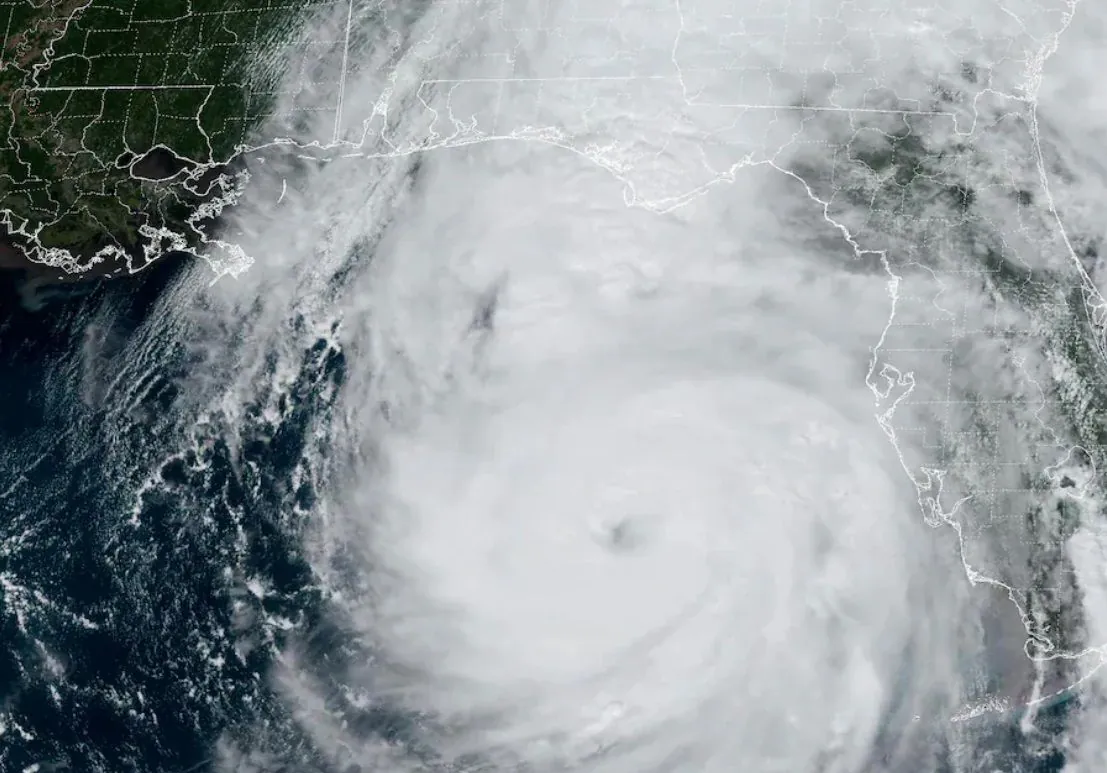
“We’ve already seen this happen with Hurricane Helene and many others, but if we look at the small island of Cuba, we see that a Black Swan event can happen even without a natural disaster. Due to outdated infrastructure, the power grid in Cuba collapsed, and the storm and earthquake delayed the repair of the grid, leaving citizens without electricity for many months.
Землетрус магнітудою 6,1 стався на півночі Чилі: з’явилися кадри з місця подіїJan 3 2025, 07:18 AM • 24741 view
In the United States, more than 70 percent of power lines and transformers are more than 25 years old and were built at a time when energy demand was light to moderate. On the other hand, there is a cybersecurity risk; hackers will continue to attack critical infrastructure, from water utilities to power companies,” says Michelle Lee, founder and CEO of Clive Carbon.
Energy security may become the main event of the Black Swan in 2025.
The temptation to reach for nuclear weapons
Donald Trump and his supporters may try to strengthen their power, in particular by weakening the role of the Senate and other institutions that provide control over the executive branch. Such a development could significantly change the structure of power and threaten political stability.
Another serious threat is the possibility of using tactical nuclear weapons. If the military campaigns of Russia, China or North Korea fail, there is a risk that these states may resort to nuclear arsenal to achieve victory. This poses a real danger to global security, as the threshold for the use of nuclear weapons is getting lower.
IAEA reports explosions near Zaporizhzhia NPPJan 6 2025, 09:31 AM • 11087 views
Digital threats cannot be ignored either. Last year we saw massive attacks on the information systems of large companies, which caused significant damage. If critical infrastructure, such as the power grid or communications, is attacked in the future, the consequences could be catastrophic. Such incidents caused by external powers could have a huge impact on the economy and national security, creating additional difficulties for society.
A decisive breakthrough in quantum computing
The reality in the United States is that information security is collapsing, and all private data is becoming public.
Breakthroughs in quantum computing, such as those made by Google, threaten the existing data protection systems we use today. Another important question that is being raised is how these technologies could be used as a weapon in international trade or political conflicts. If a breakthrough in quantum computing is made in China by 2025, allowing the country or large companies to bypass current cryptography methods, it could lead to a global crisis of trust in which all personal data becomes vulnerable.
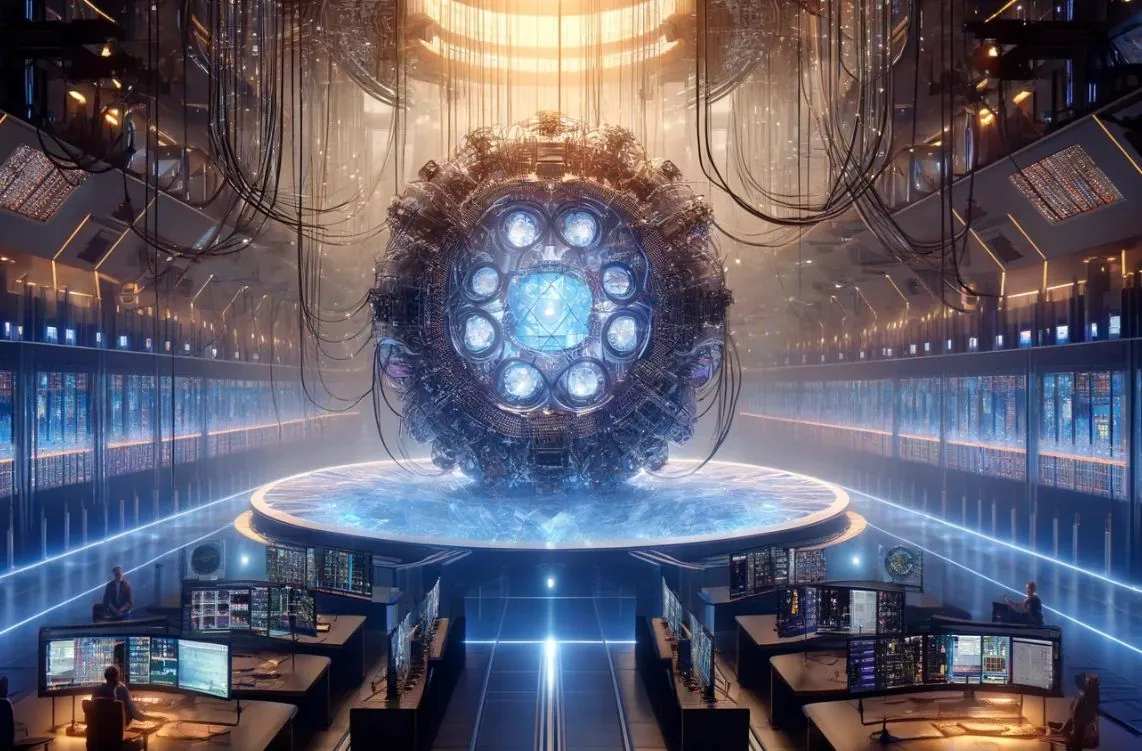
Technologies that are supposed to be a source of security and convenience can lead to a new era of isolation and distrust. This makes science fiction not only interesting, but also extremely relevant, as it accurately reflects how we can find ourselves in a world where technology not only changes our lives, but also threatens the foundations of society.
Трамп може стати першим, хто прилетить до України літаком — Зеленський Jan 5 2025, 09:05 PM • 20473 views
